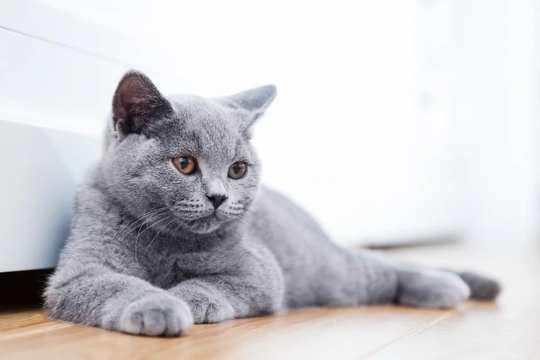
Feline Dysautonomia
Feline dysautonomia is a condition that seriously and negatively impacts a cat's autonomic nervous system otherwise known as ANS. This vital system has many functions which is to control a cat's heart rate, their digestion, salivation and much more. When it is negatively impacted in any way, the damage caused can be extremely serious. Feline dysautonomia is also known as Key-Gaskell syndrome and luckily, it is a rare disorder that typically affects younger cats.
The Causes
As previously mentioned the condition is rare and younger cats tend to be most affected by it. However, any cat can develop feline dysautonomia at any time during their lives. With this said, research suggests that geographical location is also closely linked to the disorder with the UK and certain parts of America being high on the list of places where cats have been reported as suffering from the condition. However, just why some cats develop the disorder remains unknown and more research is needed to establish why this is so.
Symptoms Associated with the Condition
When cats develop feline dysautonomia, there are specific symptoms to watch out for and these are as follows:
- Dilated pupils - unresponsive to light
- A lack of tear production
- A fear of light which is referred to as photophobia
- A protruding third eye-lid
- Vomiting
- Anorexia
- Loss of weight
- Regurgitation
- Incontinence which is referred to as polyuria
- Difficulty urinating and straining to do so
- Diarrhoea
- Constipation
- Swollen, distended bladder
- Abdominal pain
- Difficulty breathing which is referred to as dyspnea
- Dry mucous membranes and nose
- Coughing
- Discharge from nose
- Depression
- Loss of reflexes in spinal regions
- Loss of muscle tone
- Weakness
Diagnosing the Problem
A vet would thoroughly examine a cat suspected of suffering from feline dysautonomia and ideally, they would need to have a cat’s full medical history and be told how the onset of any symptoms first presented themselves. The more information a vet is given the better is it because this all helps with a diagnosis. The sort of tests a vet would typically recommend carrying out could include the following:
- X-rays to establish if a cat's oesophagus is enlarged and to see if the bladder is distended
- Eye test to check a cat’s response time
- An atropine challenge test which would test a cat's heart response time
- Histamine injections to test a cat's capillary function
Treatment Options
The kind of treatment a cat is given would depend on the primary cause and symptoms they are displaying. If a cat is severely dehydrated, they would need to be hospitalised and given IV fluids to stabilise their condition. A cat might also need to be fed intravenously if their digestive tract is negatively impacted in any way. Should they be suffering from a lack of tear production, the vet would administer artificial tears to remedy the problem.
All too often cats suffering from the condition develop pneumonia and as such need to be put on a course of antibiotics and it's essential for the course to be completed for the treatment to be effective even when cats show signs of improvement after a few days of starting the course.
Prognosis
The prognosis for cats diagnosed as suffering from feline dysautonomia is always guarded and many succumb to their symptoms more especially because they often develop aspiration pneumonia. However, if a cat does survive and responds well to a treatment which can take anything up to a year, they usually have some degree of permanent damage to their autonomic function and as such need to be carefully monitored and given a tremendous amount of supportive care for the remainder of their lives.



